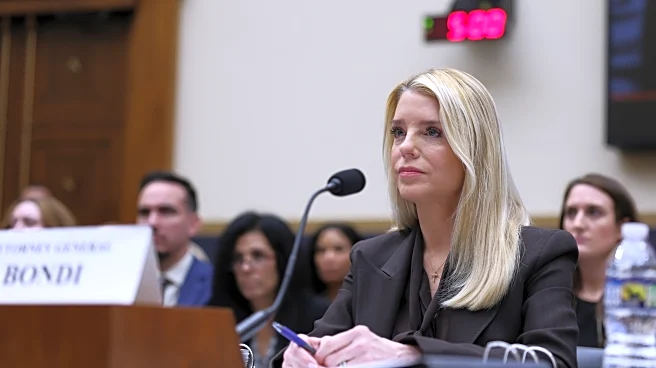What's Happening?
President Trump has admitted to finding a cognitive test he took at Walter Reed National Military Medical Center 'very hard.' The test, known as the Montreal Cognitive Assessment, is designed to screen
for early signs of cognitive decline. It includes tasks such as drawing a clock, identifying animals, and repeating words. Despite the test's simplicity, Trump claimed that the later questions were challenging. His physician reported that Trump achieved a perfect score, but questions about his mental and physical health persist, fueled by symptoms like bruised hands and swollen ankles.
Why It's Important?
The admission by President Trump regarding the cognitive test raises questions about his mental acuity, especially as he continues to engage in public disputes with political figures like Alexandria Ocasio-Cortez. The scrutiny of his health is significant given his potential candidacy for future elections. Public confidence in a leader's cognitive abilities is crucial, and any perceived decline could impact his political influence and the Republican Party's strategy. The ongoing health discussions may also affect public perception and trust in his leadership capabilities.
What's Next?
As President Trump considers a potential third term run in 2028, his health will likely remain a focal point of public and media scrutiny. The White House may face pressure to provide more detailed health assessments to address ongoing concerns. Political opponents may use these health discussions to question his fitness for office, potentially influencing voter sentiment. The administration's response to these concerns could shape the narrative around Trump's political future.










